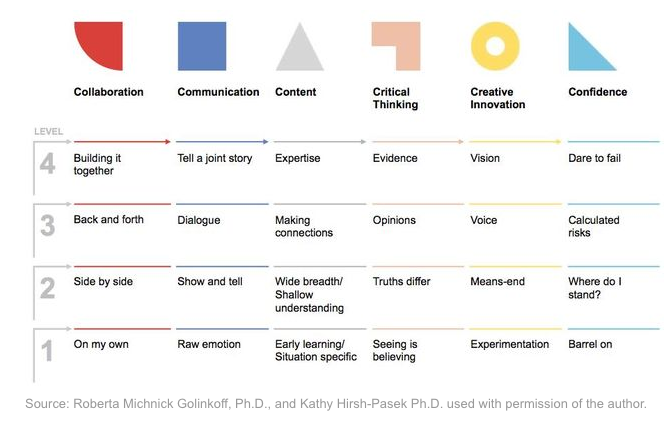Commentary by Kevin Polston, Superintendent, Godfrey-Lee Public Schools
One of the universal shared American experiences is our public education system. Our country takes pride in the roots of public education and how it has served to provide opportunity for any and all willing to grab hold of it. While time has passed and priorities have shifted, what we value in school hasn’t moved as much as one would think, beyond the historical beginnings of the compulsory public education system.
Content knowledge rooted in the “3Rs” has long been the standard, but as our needs have shifted, our practices haven’t. For example, our current education calendar was created during the time when the telegraph was the means of long distance electronic communication. Can you imagine if we only continued to try and refine the telegraph to make a better iteration? If we didn’t use current research and technology to rethink communication?
Related: Test-Driven Curriculum: Meet the 6Cs: Proficiency Demands Mastery of Other Skills, Experts Say – The messages of Kathy Hirsh-Pasek, co-author of the book “Becoming Brilliant,” and Lou Glazer, president of Michigan Future, merge two ideas:
|
Innovation is a hallmark of the American identity, but when the same concept is applied to education, we come to a screeching halt. It is time for our hard-working educators, and our system as a whole, to also work differently. The case for broadening the definition for success in school is clear.
Since A Nation at Risk was reported in the 1980s, our country has been scrambling for answers to improve educational outcomes. But due to the fact that we all have a common experience in attending school, we have what author Jamie Vollmer refers to as “nostegia.” He says the mix of nostalgia and amnesia leads us to romanticize our own experience through the system as “the good old days.” The reality is that scores on standardized tests and graduation rates are the highest they have ever been in this country, yet we are still stuck in quicksand.

Even though overall national performance is improving, Michigan’s ranking in education has plummeted,and for students of color, is at the bottom. A “nostegia” mindset calls for refining the telegraph, rather than inventing the telephone.
There are other ways, supported by research and years of practice. Kathy Hirsh-Pasek and Roberta Michnick Golinkoff wrote the book “Becoming Brilliant” around a framework called the 6Cs to call for these changes. The 6Cs include Collaboration, Communication, Content, Critical Thinking, Creative Innovation, and Confidence.
Their research calls for a system to strike a balance between all 6Cs to enhance learning. This is in contrast to our current reality’s near-singular focus on content, and the historical values rooted in the 3Rs. Content knowledge will remain vital for learning, but the Information Age requires additional skills to analyze, construct and apply content knowledge.
An interesting twist is the audience of the book was parents, not educators. Children only spend around 20 percent of their time in school, so it was a logical shift for the authors to address parents. But their message resonates with the education community as well.
It begs the question, how can we reimagine our education system to provide a more meaningful experience AND enhance academic outcomes?
We cannot simply tweak the telegraph. It’s time to rethink why we do education and if it is achieving what we want it to do. The data calls for change, and the answer must include broadening our definition beyond the 3Rs to the 6Cs for success in school, and in life outside of school.









